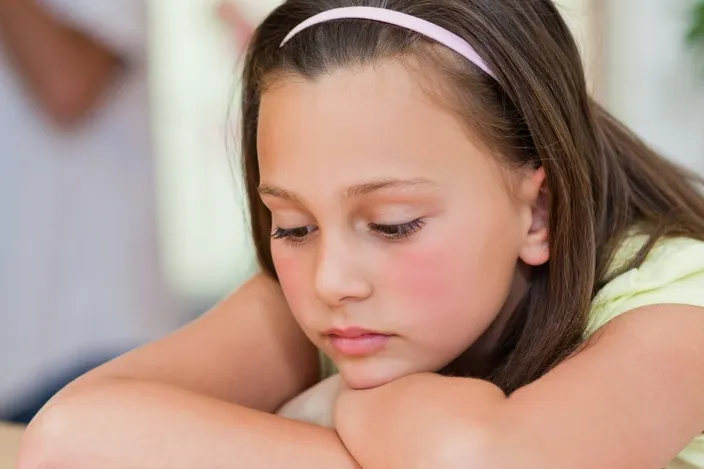Need to know
The term dysphoria comes from the Greek word for “unbearable”. Children and adults with Rejection Sensitive Dysphoria (RSD) experience extreme sensitivity to real or perceived rejection or criticism by others, which can have a profound effect on their relationships and ability to enjoy life.
Are you worried about how small setbacks, comments made by friends, or feedback by teachers can become insurmountable mountains that cause your child to despair, or become angry, anxious, or ashamed? Some common symptoms could indicate your child might suffer from RSD. Ask yourself these questions:
- Does my child have low self-esteem?
- Does my child think that no one likes them?
- Does my child avoid certain social settings for fear of criticism or embarrassment?
- Does my child have a constant fear of failure?
- Does my child express high expectations of themselves?
- Does my child have frequent emotional outbursts after being hurt or rejected?
- Does my child show feelings of hopelessness?
- Does my child engage in approval-seeking behaviour?
- Does my child react with unnecessary anger and aggression in uncomfortable situations?
- Does my child have anxiety?
Why it’s important
Although rejection sensitivity dysphoria isn’t recognised as a diagnosis under the Diagnostic and Statistical Manual of Mental Disorders (DSM-5), it can be worth having your child assessed by a mental health professional and rule it out as a symptom of an underlying mental health condition.
RSD has been linked to ADHD and Autism. Both these conditions can be characterised by difficulties regulating emotions and processing stimuli, which makes handling rejection difficult. To add to this, Autistic and kids with ADHD already feel different from their peers, which can lead to low self-esteem and contribute to the development of RSD.
Kids who experience RSD may:
- Avoid certain situations
- Avoid trying anything new
- Avoid contributing in class
- Avoid making new friendships
- Avoid joining games.
Tips and strategies
Treating Rejection Sensitive Dysphoria will depend on the severity and impact on your child, and whether there are underlying mental health conditions that need to be addressed first. There is also some benefit in cognitive behavioural therapy, which is delivered by a mental health professional who can address dysfunctional emotions, behaviours, and thought patterns, and empowers your child with actionable coping techniques.
There are plenty of things you can do to help your child long term:
- Build resilience. Identify high-risk situations and work with your child on developing a plan to deal with them. For example if soccer try outs are coming up, you could discuss the selection process and, if your child in unsuccessful, organise a practice schedule to build their skills.
- Help with problem solving. Your child is probably still learning how to process and respond to failure and rejection, so you can take these painful opportunities to show them how they can solve a problem. For example, if a friend cancels a playdate, brainstorm ideas on what else they can do to have a fun day without their friend.
- Teach through stories. Sometimes kids learn best when they can relate to personal stories. Choose a setback you’ve experienced and explain how you overcame it, or use stories of a famous person’s struggles and achievements to illustrate positive outcomes.
- Instil a growth mindset. Fear of failure can stop kids from trying something new and it’s rooted in the belief that ability, intelligence, and aptitude are all fixed. A growth mindset changes the focus to learning and improving. Parents can do their bit by helping kids use positive language when referring to failures, e.g. “I can’t do a cartwheel, yet,” and by praising effort, strategies, persistence, and resilience over talent.
- Highlight and foster strengths. Build your child’s confidence so that they have something to draw upon when dealing with RSD. When they use negative talk, highlight their existing strengths or describe a skill that they have developed over time with practice.
- Encourage rest and exercise. Sleep and exercise are key ingredients for a healthy and calm mind, so prioritise them in your child’s daily life.
References
- https://www.adhdfoundation.org.uk/wp-content/uploads/2021/02/Why-might-your-child-with-ADHD-be-experiencing-Rejection-sensitive-dysphoria-RSD.pdd
- https://www.healthline.com/health/mental-health/rejection-sensitive-dysphoria#diagnosis
- https://www.sciencedirect.com/science/article/abs/pii/S0272735817301228
- Rejection Can Be More Painful with ADHD” — CHADD
- Rejection Sensitive Dysphoria: Symptom Test for ADHD Brains
- Rejection Sensitive Dysphoria” — Mental Health Conditions
- https://www.understood.org/articles/en/adhd-and-coping-with-rejection-what-you-need-to-know
- https://www.psychologytoday.com/us/blog/your-way-adhd/202106/adhd-and-rejection-sensitivity-dysphoria
- https://www.mindsethealth.com/matter/growth-vs-fixed-mindset


